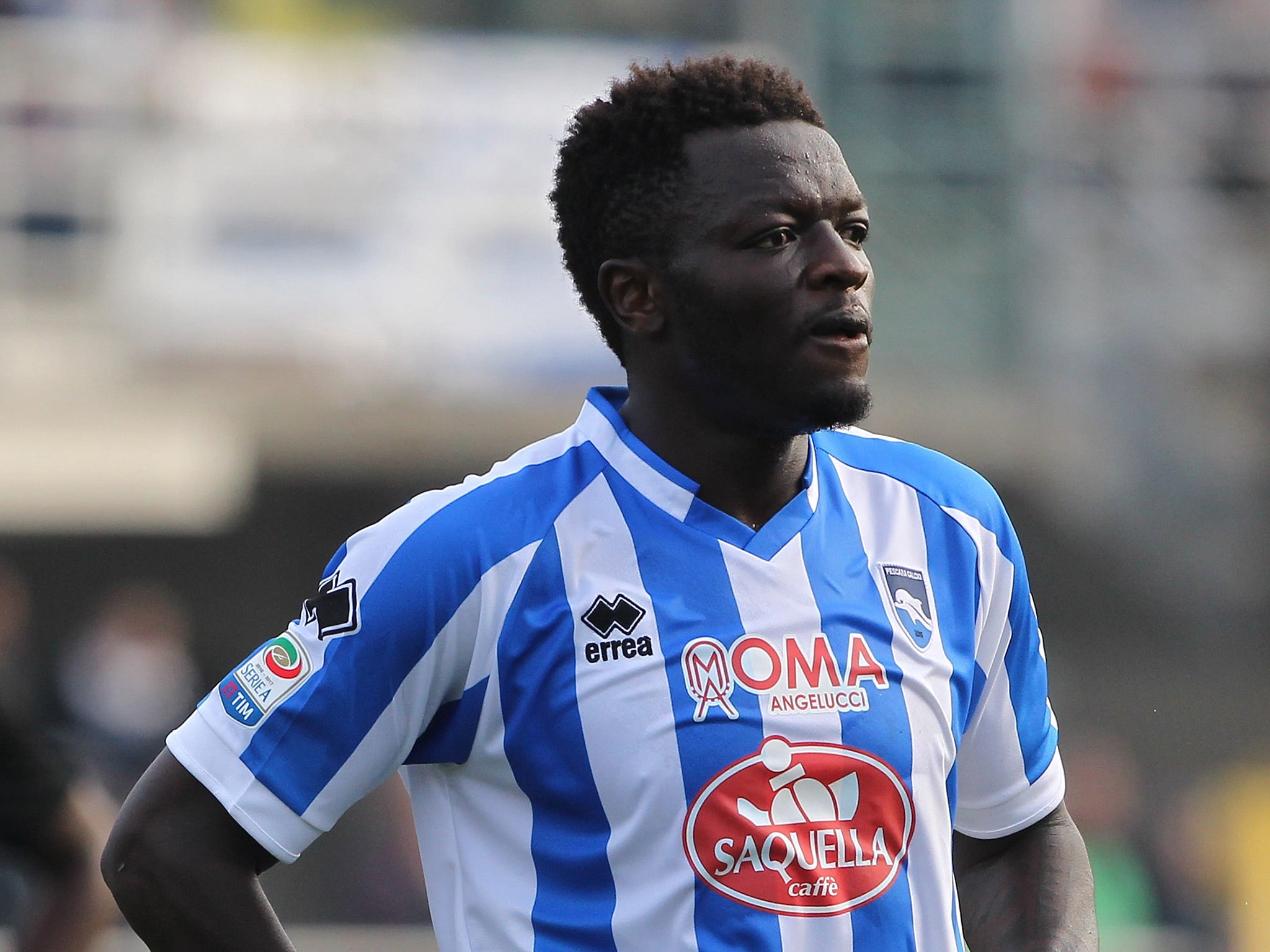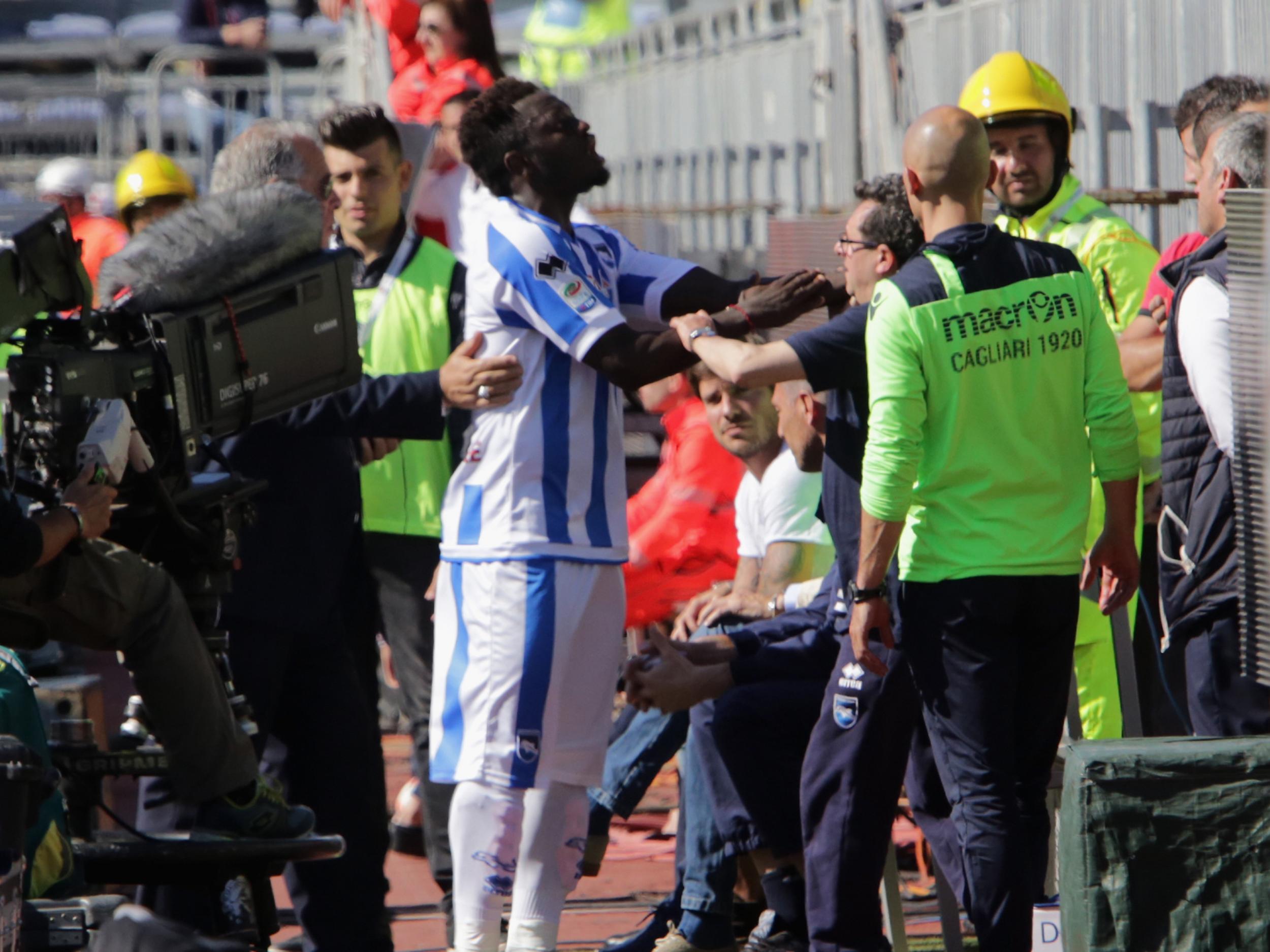Sulley Muntari racial abuse shames Serie A and the whole of Italian football
Support for Muntari has come from all corners of the globe, but Italian football continues to ignore its most glaring problem

Your support helps us to tell the story
This election is still a dead heat, according to most polls. In a fight with such wafer-thin margins, we need reporters on the ground talking to the people Trump and Harris are courting. Your support allows us to keep sending journalists to the story.
The Independent is trusted by 27 million Americans from across the entire political spectrum every month. Unlike many other quality news outlets, we choose not to lock you out of our reporting and analysis with paywalls. But quality journalism must still be paid for.
Help us keep bring these critical stories to light. Your support makes all the difference.
Every Tuesday, Serie A’s disciplinary commission releases a report containing the latest round of punishments, a document informing the league’s players, clubs and officials how long they will be suspended for or how much they will be fined. This week, in and amongst the usual penalties for red cards and crowd control failures, two items stood out.
The first was a two-game ban for Roma’s Kevin Strootman after he was found guilty of diving to win a penalty against Lazio. While Italian football deserves support for its strong stance against the Dutch international’s blatant cheating, it must be held in complete contempt for its handling of Sulley Muntari.
Now with Pescara, the former Milan and Ghana midfielder was handed a one-match suspension for an accumulation of yellow cards. That may well be standard practice, but his latest booking came in Sunday’s meeting with Cagliari. Muntari became visibly upset with a section of the Stadio Sant’Elia crowd, initially responding by speaking to a group of fans at half-time and even giving his shirt to one youngster while pleading that they set a better example.
When the abuse persisted from a different group, the player complained to referee Daniele Minelli and the fourth official to stop the match. Growing increasingly irate, he began slapping the skin on his own forearm as they refused to support him.
Shown a yellow card as his anger boiled over, he left the field and refused to return. “That’s where I got angry,” Muntari said after the final whistle. “Why did he turn on me instead of stopping the match? The fans messed up, but the referee should have done something different, not accuse me. I’m not a victim, but if you stop the matches I’m convinced that these things won’t happen any more.”
However, from there things grew even more ridiculous. The league panel decided that not only would the yellow card – and thus his suspension – stand, but that Cagliari would not be penalised because the chanting was “only from around 10 people” and was only heard due to fellow fans staging a silent protest.

Support from outside Italy was deafening, with Kick It Out trustee Garth Crooks urging black players across Italy to refuse to play. The head of the United Nations Commission on Human Rights Zeid Ra'ad Al Hussein called Muntari “a source of inspiration for all of us,” while FIFPro demanded that the punishment be overturned immediately.
Pescara, of course, condemned the events and backed their player, but on the peninsula the only real sound was that of heads being wilfully and ignorantly plunged into the sand. Cagliari’s vice president Stefano Filucchi insisted that “nobody here heard anything,” and the Gazzetta dello Sport’s match report accused Muntari of “losing his head” but largely ignored the incident.
That kind of apathy, plus the letter-of-the-law stance of the governing body does nothing but cement Italian football’s reputation as navel-gazing and insular, seemingly oblivious to how the world has evolved over the past 80 years. This is no longer 1937, it is 2017 and players deserve the right to do their jobs without fear of abuse from groups of backwards-thinking supporters who are granted immunity despite being caught on TV delivering monkey chants and racist taunts.
The Italian FA, the Lega Calcio and the clubs themselves must all do better, remembering that these men are human beings, and the fact that they are very well-paid for being very good at sport is not an excuse to let insults go unchecked. Sulley Muntari is not the first Serie A star to suffer in this manner, but the sad truth is that those tasked with making a difference have done almost nothing to ensure that he is even close to being the last.
Join our commenting forum
Join thought-provoking conversations, follow other Independent readers and see their replies
Comments